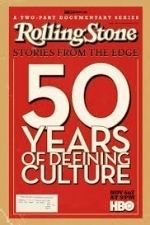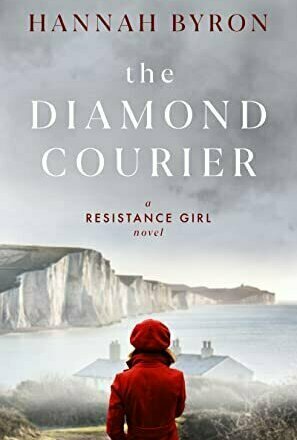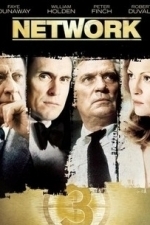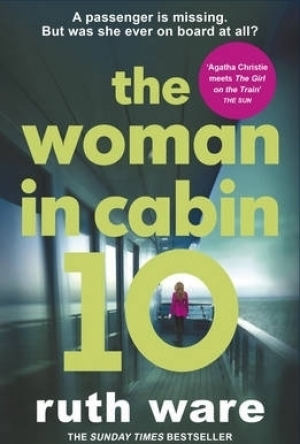
The Art Newspaper
Art & Design, Lifestyle and Magazines & Newspapers
App
The Art Newspaper, founded in 1990, is the leading reporter of art news worldwide. Unique in its...
Phil Leader (619 KP) rated A Blink of the Screen: Collected Shorter Fiction in Books
Nov 8, 2019
The basis for this seems to be that the nugget of an idea behind a Pratchett book was rarely simple enough to be encapsulated neatly in the short story form; his characters and ideas took time to develop and that's before the addition of the amusing footnotes and his skill at producing pastiche, parody and satire of many different things without the narrative stumbling or swerving.
This collection shows that although relatively few in number, the Pratchett short story was just as fine as could be expected. Sometimes they could be a little rushed to get to the point before the end (best seen in his tale of a gnome from the country that finds other gnomes in a department store - the story that was later rewritten fully as Truckers)
This is also a somewhat eclectic mix. There is the first story that he was paid for about the devil wanting to promote hell, which he wrote at school but it is clear that he already had the flair for writing even then. A few science fiction stories including the prescient and dark #ifdefDEBUG "world/enough" "time" about someone retreating to a virtual reality world. There is the story that formed the first ideas that would eventually become The Long Earth and of course some Diskworld shorts and related notes.
Taken together they show that over a long span of time Pratchett was coming up with great ideas. There is a little uneveness but part of this is due to his writing style being different between Diskworld and his more science fiction based stories (something that confused a lot of Diskworld readers when they read The Long Earth, but goes back even to The Dark Side of the Sun and Strata both of which are very different to Diskworld in tone.
To this end the editors have been wise to have the Diskworld stories as the second half with the 'other' stories at the beginning. This avoids the tone changing too much between stories.
This sounds like it might be for the Pratchett 'completist', like one of those greatest hits albums that comes out with just one or two rare tracks, but really this is a great collection of short stories by any measure. A couple of these are fairly well known - Troll Bridge and Theatre of Cruelty - but there is nothing gratuitous here. And of course there are plenty of laughs and subtle takes on society and humanity.

The Guardian daily edition
News and Magazines & Newspapers
App
The Guardian and Observer daily edition beautifully re-imagines the newspaper for the iPad. Each...
Hazel (1853 KP) rated The Diamond Courier in Books
Dec 10, 2020
The surname Hamilton may be familiar to those who have read the previous book but Lady Madeleine has left her war achievements far behind in The Diamond Courier where she plays the role of a prim and proper lady of the house. Her daughter, Liliane, feels trapped by her sensible parents' expectations who thwart her plans to be a political journalist. Yet Lili, encouraged by the handsome leader of the British Communist Party Leo Oppenheim, perseveres, thus estranging herself from her family.
Lili soon learns living in London with Leo is not the life she desired, but feels it is too late to back out, especially after witnessing the treatment of Jews on the continent. The Jewish community need someone to bring their precious diamonds to safety before the Germans get their hands on them, and they believe Lili is the best person for the job. Unless, of course, she gets caught.
The Diamond Courier is much darker than Byron's previous book. Naturally, war is not a happy topic, but the sense of hope felt in In Picardy's Fields is missing in this novel. The story divides into two sections, "Leo" and "After Leo". The former is lengthier, drawn-out, and not always pleasant to read. The latter, on the other hand, is packed with danger, excitement and adventure.
For Lili, Communism is something new and exciting, which she desires to pursue. The party has clear views about the war, with which all members must agree. Yet, when faced with the horrors of war, Lili realises she must cast aside her political opinions. Whether Communist, Jew, sympathiser or resistance member, no one deserves the terrible treatment delivered by the Nazis.
Although this is a work of fiction, Byron remains faithful to the true nature of the Second World War. She does not gloss over any of the atrocities and, whilst the reader keeps their fingers and toes crossed that Lili will get her "happily ever after" ending, this cannot be possible for everyone in the novel.
Aiming to show the strength of women living in a "man's world", Byron has created female characters of whom to be proud and respect. Whilst the storyline may not always be pleasant, it is a gripping narrative that immerses the reader into Lili's life and experiences. Hannah Byron has a way with words that keeps the reader engaged throughout. She is an author to keep an eye on.

The New York Times
News and Magazines & Newspapers
App
Stay up to date wherever you go. Enjoy award-winning journalism with the NYTimes app for iPhone,...

Rolling Stone: Stories from the Edge
TV Show Watch
Directed by Oscar-winner Alex Gibney (HBO’s Taxi to the Dark Side and Going Clear: Scientology and...

Ferrite Recording Studio
Music
App Watch
Ferrite combines the ease-of-use of a “voice memo” audio recorder, with a versatile multi-track...
music
RəX Regent (349 KP) rated Network (1976) in Movies
Feb 19, 2019
Smartly scripted, on the ball cynicism and yet harking back to the rose tinted nostalgia common with American media movies in whcih the industry was supposedly filled with Walter Cronkites,
the notion that American press was once beyond reproach is clearly a fallacy, in contrast, the notion that American news media was becoming so ratings driven that the news gave way to outlandish editorialism, is not.
Howard Beale (Finch) has an on air breakdown and whilst his best friend and producer, Max Schumacher (William Holden) tries to pull him from the air waves, allowing him to bow out with some dignity, the new wave of corporate management lead by CEO Frank Hackett (Robert Duval) and Holden’s replacement and eventual lover, Diana, (Faye Dunaway), have other ideas.
She sees an opportunity in the ratings spike gained by Beale’s rants which speak to the peoples growing frustrations and takes advantage, only driven by ratings.
Though the screenplay and performances are nothing less than brilliant, there are two core problems with this movie.
The first being that it is too long. The plot seems to be dragged out and repetitive as we approach the almost inevitable conclusion and the second is the level of preaching. But this is a symptom of the first, opening with a good argument, with old school journalism versus the TV generation and as the film goes on, the arguments need to escalate but since this was covered in the first half an hour, the points become laboured and over started.
The notion that the TV generation is shallow and amoral is put at odds with the middle aged newspaper reader, where time and decency are standard. This is a point which I refuse to accept since some of the 20th centuries most amoral acts where committed either before 1936, the birth of television and in the first couple of decades there after, by the very generation whcih is being held up as the moral standard here.
large_network_blu-ray_3The press has always had its paymasters, always had to sell newspapers and whilst the medium and methods may have changed, this does feel like sour grapes by the end. Criticising the characters motivations is one thing, but this film seems to imply that the modern world of television is making sociopaths of us all, dumbing us down and numbing our emotions to the point of accepting nothing but pure spectacle.
In many ways this is true but is also a very flawed argument and comes across as bunch old men crying into there Scotch in some dimly lit bar, in a way not too dissimilar to the print or broadcast media of today, hitting out at the blogging and twitter generation.
The ending was amusing though with the quote “This was the story of Howard Beale, the only known case of a man killed because of poor ratings”.
Very droll.
Kristy H (1252 KP) rated The Woman in Cabin 10 in Books
Feb 8, 2018
This was an interesting and suspenseful thriller. I agree with the comparisons to an Agatha Christie novel: with the setting of the novel being a ship, you have a limited cast of characters (and suspects), which heightens some of the intrigue. Ware does an excellent job of setting the scene, and you can practically feel yourself trapped in this opulent yet slightly claustrophobic, endlessly rocking luxury cruise-liner. Lo is set up rather quickly as unreliable narrator: she's clearly anxious after her break-in, prone to drinking, and reeling from a lack of sleep. Therefore, from the outset, we're not sure if we can trust what we're reading or what seems to be unfolding on this ship. One of my favorite things about this novel is that it certainly keeps you guessing -- I was constantly coming up with (and discarding) various theories as I read, placing blame on a new character every few chapters. And, of course, always harboring that seed of doubt that Lo just made the entire thing up. While we hear entirely from Lo, Ware places a few newspaper stories at the end of each chapter, which just add to your doubt and confusion.
As for Lo, she's not the most enjoyable of main characters and due to our limited set of characters, we don't have many others, so most of the tale hinges on her. She's a bit annoying and whiny and prone to overthinking and bad decisions. She can get frustrating at times, to say the least. The story itself isn't really creepy or spooky, but it's definitely interesting and, as I said, keeps you guessing until nearly the very end. A few of the plot points seem a bit haphazard, as if things were just jammed together randomly into the story, but I suppose they all work together at the end.
Overall, this is certainly an engaging and suspenseful thriller. If you enjoy a fast-paced whodunnit, this one is for you. 3.5 stars.




